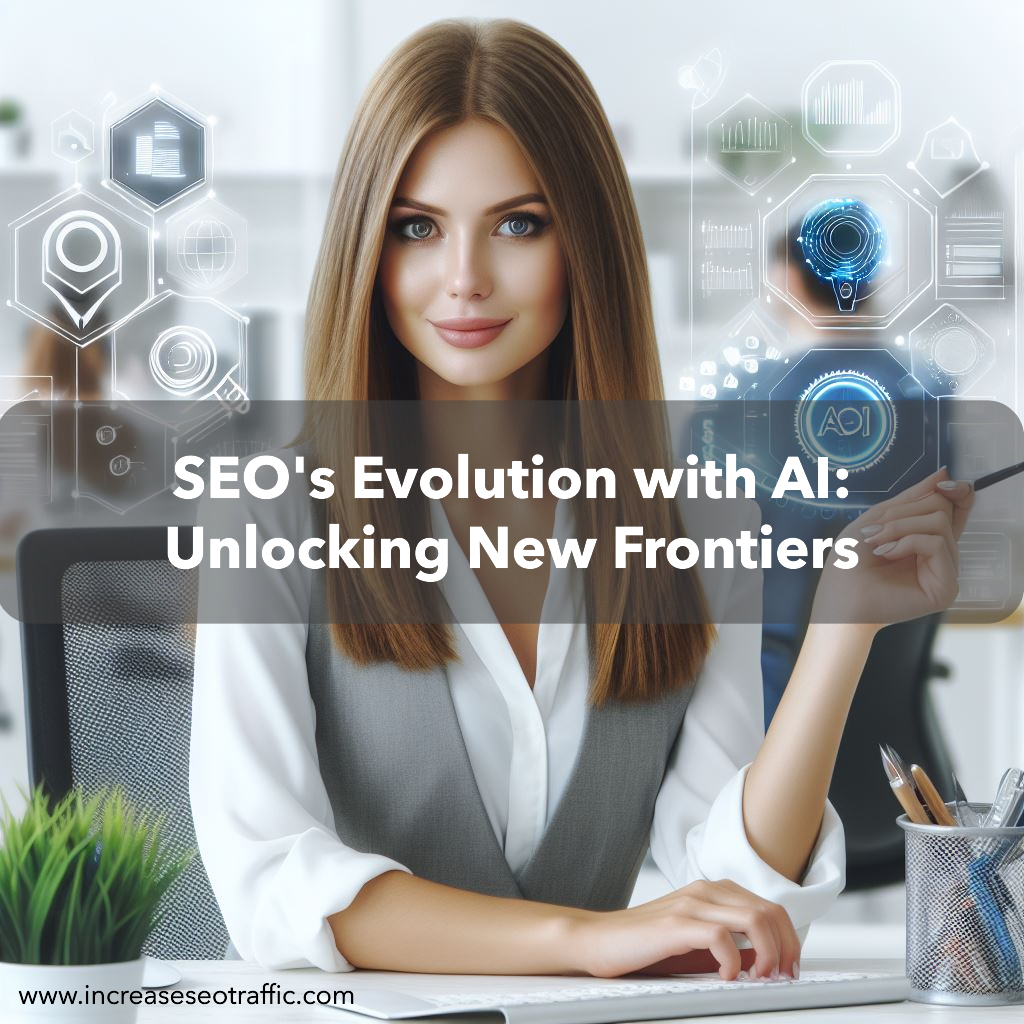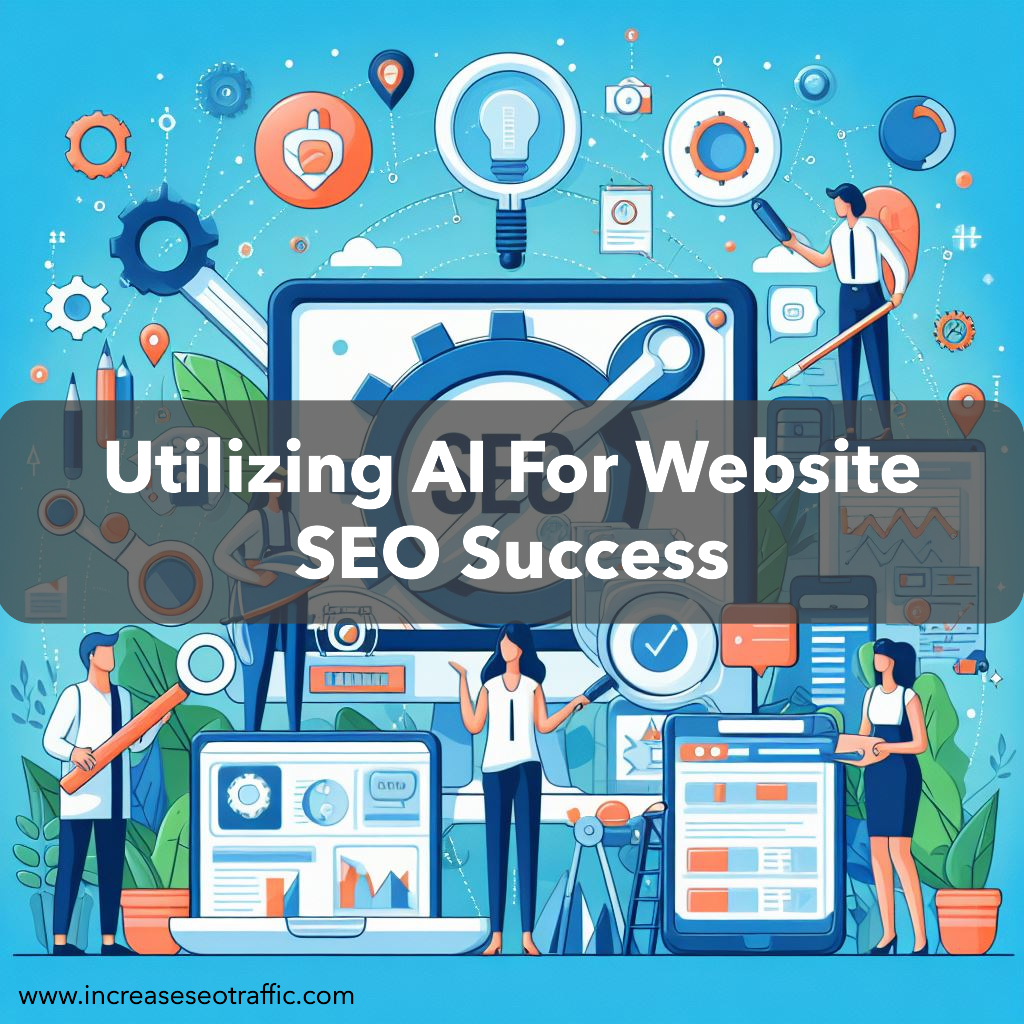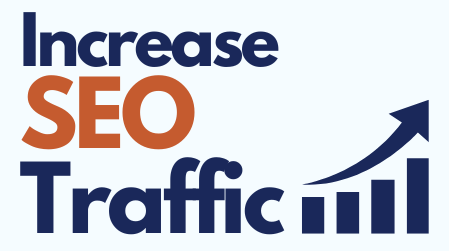
SEO professionals are constantly adapting to the ever-evolving landscape of search engine optimization. With the rise of artificial intelligence, the game is changing yet again. In this blog post, we will explore the future of SEO with AI and discuss strategies that you need to implement to stay ahead in the digital marketing game.
Preparing the Groundwork for AI-Driven SEO
How-To Assess Your Current SEO Strategy for AI Readiness
Even if you think your current SEO strategy is on point, assessing its readiness for AI integration is crucial. Start by evaluating the quality of your data sources. Are you collecting relevant and accurate data that can be used by AI algorithms effectively? Next, consider the scalability of your current strategy. Is it flexible enough to accommodate the dynamic nature of AI technology?
Tips for Collecting and Structuring SEO Data for AI
Structuring your SEO data in a way that is AI-friendly is key to optimizing its potential. Start by collecting data from various sources, including website analytics, keyword research tools, and competitor analysis. Organize this data in a structured format using categories and tags to make it easily interpretable by AI algorithms.
- Ensure the data is clean and free from errors
- Use schema markup to enhance data categorization
Example of Using Schema Markup to Enhance Data Categorization Using AI:
Scenario: An e-commerce website sells a variety of products, including clothing, electronics, and home goods. The website owner wants to improve the accuracy of their product categorization to enhance the user experience and search engine visibility.
Identify Relevant Schema Types: Determine the appropriate schema types for the website’s products, such as Product, Offer, and AggregateRating.
Integrate Schema Markup: Add structured data markup to the website’s product pages using the identified schema types. For example:
<script type="application/ld+json">
{
"@context": "https://schema.org",
"@type": "Product",
"name": "Blue Cotton T-shirt",
"description": "A comfortable and stylish blue cotton t-shirt.",
"image": "https://example.com/images/blue-t-shirt.jpg",
"brand": {
"@type": "Brand",
"name": "XYZ Clothing"
},
"offers": {
"@type": "Offer",
"price": "19.99",
"priceCurrency": "USD",
"availability": "https://schema.org/InStock"
},
"aggregateRating": {
"@type": "AggregateRating",
"ratingValue": "4.5",
"reviewCount": "120"
}
}
</script>
After structuring your SEO data, consider implementing automation tools to streamline the data collection process and stay up to date with the latest industry trends.
Readiness
Implementing AI-driven SEO strategies requires a solid foundation of well-structured and quality data. By assessing your current strategy, collecting and structuring data effectively, you can prepare your SEO efforts for the future of AI in digital marketing.
Understanding AI and Machine Learning Fundamentals
Clearly, AI and machine learning are revolutionizing the field of SEO. AI refers to the simulation of human intelligence processes by machines, especially computer systems. Machine Learning is a subset of AI that involves the development of algorithms that allow computers to learn and improve from experience. With advancements in AI and machine learning technologies, SEO strategies are becoming more data-driven and efficient than ever before.
How Machine Learning Algorithms Influence SEO
Even small changes in machine learning algorithms can have a big impact on search engine rankings. These algorithms help search engines understand the intent behind user queries, leading to more accurate search results. By optimizing content with the help of machine learning, websites can improve their visibility and relevance to users, ultimately boosting their rankings in search engine results pages.
Scenario: A travel website wants to identify the most important ranking factors for travel-related queries.
Collect Data: Use a web scraping tool to collect a large dataset of search engine results pages (SERPs) for travel-related queries.
Extract Features: Extract relevant features from the SERPs, such as:
- URL of the ranking website
- Page title
- Meta description
- Backlink count
- Social media shares
- Website authority metrics
Train Machine Learning Model: Train a machine learning model, such as a decision tree or random forest, using the extracted features as input and the ranking position as the target variable.
Identify Important Features: Use the trained model to identify the features that are most important for predicting ranking position. For example, the model may determine that website authority and content quality are the most influential factors.
Code Example (Python):
import pandas as pd
from sklearn.model_selection import train_test_split
from sklearn.ensemble import RandomForestClassifier
# Load the SERP data
serp_data = pd.read_csv(‘serp_data.csv’)
# Extract features
features = serp_data[[‘url’, ‘title’, ‘description’, ‘backlink_count’, ‘social_shares’, ‘website_authority’]]
# Split the data into training and testing sets
X_train, X_test, y_train, y_test = train_test_split(features, serp_data[‘ranking_position’], test_size=0.2)
# Train the machine learning model
model = RandomForestClassifier()
model.fit(X_train, y_train)
# Identify important features
importances = model.feature_importances_
print(importances)
Tips For Leveraging Predictive Analytics in SEO Decisions
Benefits:
- Data-driven insights: The machine learning model provides data-driven insights into the most important ranking factors for travel-related queries.
- Improved content quality: By understanding the factors that search engines value, the website owner can create higher quality content that is more likely to rank well.
- Competitive advantage: By leveraging machine learning algorithms, the website owner can gain a competitive advantage by staying ahead of the curve in terms of SEO best practices and emerging trends.
Even with the rise of AI in SEO, predictive analytics remains a key tool for making informed decisions. By analyzing historical data and trends, SEO professionals can predict future outcomes and tailor their strategies accordingly. This not only helps in identifying potential opportunities but also in mitigating risks that could affect a website’s performance.
- Utilize predictive analytics tools to forecast changes in search engine algorithms
This approach allows websites to stay ahead of the curve and adapt their SEO strategies proactively. By implementing predictive analytics, SEO professionals can make data-driven decisions that align with their long-term goals and objectives.
- Integrate predictive analytics insights with AI-powered tools for enhanced SEO performance
This combination of predictive analytics and AI can provide a more comprehensive view of SEO efforts, allowing for real-time adjustments and optimizations. By leveraging both predictive analytics and AI technologies, websites can stay competitive in an ever-evolving digital landscape.
Fundamentals
How to Optimize Content with AI
Strategies for Utilizing AI to Create and Optimize Content
Keep in mind that AI can revolutionize the way content is created and optimized for search engines. By utilizing AI tools, you can analyze vast amounts of data to understand user intent and preferences, which can help you tailor your content to meet their needs effectively. AI can assist in generating content ideas, optimizing keywords, and even determining the best length and format for your content.
Furthermore, AI can help in improving the overall quality of your content by identifying gaps, suggesting related topics, and even providing insights on how to make your content more engaging. By embracing AI in your content creation process, you can stay ahead of the curve and enhance your SEO efforts significantly.
How-To Integrate Semantic Analysis for SEO Enhancement
Even with AI, semantic analysis plays a crucial role in enhancing SEO strategies. By understanding the context and meaning behind words used in search queries, AI can help you create more relevant and targeted content. Semantic analysis involves looking beyond keywords to identify the relationships between words and concepts, allowing you to optimize your content for a more nuanced understanding by search engine algorithms.
Strategies for incorporating semantic analysis include using AI-powered tools to identify related keywords, phrases, and entities that can enrich your content. By leveraging semantic analysis with AI, you can improve the relevance and accuracy of your content, leading to higher search engine rankings and better user engagement.
Enhancing User Experience with AI
Personalization Tips: How AI Can Tailor User Experience
All websites strive to provide a personalized experience to their users, and with AI, this is now more achievable than ever. By leveraging AI algorithms, websites can analyze user data and behavior to tailor content, product recommendations, and offers to individual preferences. This level of personalization can enhance user engagement, increase conversion rates, and ultimately boost customer loyalty.
- Implement recommendation engines that suggest personalized content based on user preferences.
- Use AI chatbots to provide real-time support and assistance tailored to the user’s needs.
Perceiving user needs and delivering customized experiences will be the cornerstone of successful SEO strategies in the AI era.
Factors to Consider for Improving Site Navigation with AI
If you want to improve user experience on your website, consider leveraging AI to enhance site navigation. By using AI-powered algorithms, you can optimize your website’s structure, menu design, and search functionality to make it easier for users to find what they’re looking for quickly and efficiently.
- Utilize predictive search capabilities to anticipate user queries and deliver relevant results.
Even the smallest tweaks in site navigation can have a significant impact on user satisfaction and engagement. Assume that a seamless navigation experience will keep users on your site longer and encourage them to explore further.
- Implement AI-powered tools to analyze user behavior and make data-driven decisions for improving site navigation.
Assume that by enhancing site navigation with AI, you can create a user-friendly environment that promotes better engagement and ultimately leads to higher rankings in search engine results.
AI-Powered Analytics and SEO Monitoring
Many advancements in artificial intelligence have revolutionized the way SEO strategies are monitored and analyzed. With the help of AI-powered tools, businesses can now track their search engine optimization efforts in real-time, allowing for quicker adjustments and optimization.
How to Implement AI Tools for Real-Time SEO Tracking
For businesses looking to implement AI tools for real-time SEO tracking, it is crucial to first identify the key performance indicators (KPIs) that matter most to their SEO strategy. Once these KPIs are established, businesses can leverage AI tools to monitor and analyze data continuously. By integrating AI into their monitoring processes, businesses can stay ahead of the curve and make data-driven decisions to optimize their SEO efforts in real-time.
Tips for Interpreting AI-Generated SEO Reports and Metrics
Implementing AI-generated SEO reports and metrics can provide businesses with valuable insights into the performance of their SEO strategies. To effectively interpret these reports, businesses should pay close attention to trends and patterns identified by the AI tools. Additionally, it is crucial to compare these metrics against the established KPIs to gauge the success of the SEO campaign accurately.
- Focus on key trends and patterns identified by AI tools for actionable insights.
- Regularly compare AI-generated metrics with established KPIs to measure SEO success accurately.
- Perceiving the deeper implications of the data can help businesses refine their SEO strategies for optimal results.
The Trust Factor: AI, SEO, and Ethics
Now, as artificial intelligence (AI) continues to revolutionize the world of SEO, the ethical considerations surrounding its use become increasingly critical. Balancing the power of AI in boosting search engine rankings with maintaining ethical practices is a challenge that cannot be ignored.
How-To Navigate the Ethical Considerations of AI in SEO
Considerations must be made when leveraging AI in SEO strategies to ensure ethical practices are upheld. Transparency in how AI is used to optimize search results is key. By understanding and adhering to guidelines set forth by search engines, businesses can navigate the ethical implications of AI without compromising credibility or trust.
Tips for Transparent and Ethical AI Deployments in SEO
- Ensure that AI algorithms used in SEO are unbiased and do not discriminate against any individuals or groups.
- Regularly review and monitor AI systems to identify and address any potential ethical issues that may arise.
Ethical considerations in deploying AI for SEO go beyond just following guidelines; it is about creating a trustworthy digital environment that values integrity and fairness.
Plus
Ethical deployment of AI in SEO not only ensures compliance with regulations but also builds a reputation of reliability and credibility for businesses. Recognizing that ethical considerations are at the core of long-term success in SEO is crucial for sustainable growth and positive brand image.
Future-Proofing Your SEO Strategy
Adapting to Algorithm Changes: Preparing for the AI-Driven Future
Future-Proofing your SEO strategy is crucial in the rapidly evolving landscape of AI-driven algorithm changes. Despite the uncertainty that comes with these advancements, there are proactive steps you can take to prepare your website for the future. By closely monitoring and analyzing algorithm changes, you can stay ahead of the curve and adjust your SEO strategy accordingly.
As AI continues to shape the way search engines rank content, it is important to focus on creating high-quality, relevant, and engaging content that adds value to your audience. By understanding the principles behind these algorithm changes, you can adapt your strategy to meet the evolving criteria for search engine ranking. Embracing AI-driven technologies and optimizing your website for these advancements will future-proof your SEO strategy and ensure long-term success in the digital realm.
How to Stay Informed on AI Trends Impacting SEO
Even as AI continues to revolutionize the field of search engine optimization, staying informed about current trends is key to adapting your strategy effectively. By keeping a close eye on industry news, attending conferences, and engaging with thought leaders in the field, you can stay ahead of the curve and anticipate upcoming changes in AI algorithms.
Changes in AI algorithms can have a profound impact on your SEO efforts, making it crucial to stay informed and adaptable in your approach. By continuously educating yourself on the latest AI trends and implementing best practices, you can position your website for success in the ever-evolving landscape of search engine optimization.
Future of SEO with AI
Even as AI continues to revolutionize the field of search engine optimization, staying informed about current trends is key to adapting your strategy effectively. By keeping a close eye on industry news, attending conferences, and engaging with thought leaders in the field, you can stay ahead of the curve and anticipate upcoming changes in AI algorithms. This will allow you to make informed decisions about how to leverage AI to improve your SEO performance and stay competitive in the ever-evolving digital landscape.
AI tools are revolutionizing SEO by helping organizations analyze data, personalize content, and optimize search performance. This allows businesses to better understand user behavior and deliver more relevant and engaging experiences. The key to success in the future of SEO with AI will be the ability to adapt and evolve with technology, staying ahead of the curve to maximize visibility and reach in the ever-evolving online ecosystem.
Related Posts

Surprising Facts You Didn’t Know About Local SEO
5 Surprising Facts You Didn’t Know About Local SEO Read the blog Most people are aware of the importance of

Benefits Of Local SEO
Local SEO Strategies Untap the benefits Read the blog SEO is a powerful tool that can significantly impact the success

Boost Your Local SEO
Expert Tips – How To Boost Your Local SEO Ranking With Minimal Effort Read the blog Expertise in local search

SEO Generator AI
Mastering SEO Generator AI A Definitive Guide For Website Owners Read the blog Preliminary Concepts Understanding the Basics of SEO

AI For Website SEO
Utilizing AI for Website SEO Success Understanding AI and its Role in SEO Read the blog Many website owners today

Future Of SEO With AI
The Future Of SEO With AI Strategies You Need To Implement Read the blog SEO professionals are constantly adapting to

About the blog
Table of Contents
Browse SEO Categories
- In-Depth Guides (2)
- SEO (13)
- Content Marketing SEO (4)
- Enterprise SEO (1)
- Keyword Research (1)
- Local SEO (3)
- Technical SEO (5)
- SEO With AI (7)
Subscribe to our newsletter
Unleash Your Website's Power:
The Master Class in SEO for Beginners
This isn't just another "SEO Guide." It's your launchpad to search engine domination.
